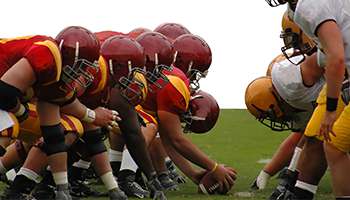6 Ways You Can Prepare for Interview Questions
The interview is one of the most vital steps in the job-searching process. This is the moment that you have a foot in the door, and you’re looking to impress the right people. Unfortunately, many people still treat interviews the same way they would treat a coffee break with friends. They show up, expecting a nice conversation, and don’t expect needing to prepare for it.
How might you keep yourself from falling into this trap? We’ve created a list of ways you can prepare to answer questions for your next interview.
1. Research and create a list of common interview questions
Doing a simple search online and collecting popular interview questions will give you some foresight into the mind of the interviewer. These questions give you enough to go on to prepare responses in your head. Even if most of those popular questions aren’t asked in your interview, it is always beneficial to get your brain thinking.
2. Practice speaking in front of a mirror
Now that you have a list of sample questions, it’s time to answer them. However, the content of your answer isn’t the only thing that matters. There is also how you deliver your responses. While you speak in the mirror, pay attention to your body language, where you look with your eyes, what you do with your hands, etc. Some things to think about while doing this: are you maintaining eye contact? Are you fidgeting, playing with your hair, scratching, etc? Observe how you deliver your answers and make the necessary adjustments. We recommend firm eye contact and no absent-minded ticks or nervous behavior.
3. Recruit someone to help
If a mirror isn’t working for you, ask a family member or friend to help. Offer them your list of questions, sit down with them, and pretend that they are interviewing you. Ideally, you will want feedback on your answers as well as your presentation. Remember to take constructive criticism on the chin and work towards improving.
4. Write down things you might forget later
Writing things down has the tendency to help people remember or memorize things. It is why taking notes during school is such a well-rounded learning technique for most students. If there is a past scenario from an old job or from school that would be useful in answering a question, write it down on a piece of paper a few times. You won’t be using the paper during the interview, but it will help with memorization and recall.
5. Remember that it’s okay to take your time
Interview questions don’t need to be answered right away. You don’t need to have a response all ready for the interviewer immediately. It is always a good idea to take a few seconds to collect your thoughts and formulate a response. The important thing is not to panic if you don’t think of something right away. If you need more time, you can ask the interviewer for an example of what they might be looking for. That may help jog your memory into figuring out a response.
6. Keep your replies short and concise
Have you ever been in a conversation with someone who overshares, goes on rabbit trails, and never stops talking? Don’t be that kind of person in an interview. If you feel like your response to a question isn’t long enough, don’t trap yourself into a spiral of rambling just to make your answer last longer. It is always better to say and mean what you say in a concise manner.
Need more interview advice? We can help. Contact us today to learn how we can help you grow in your next career.






